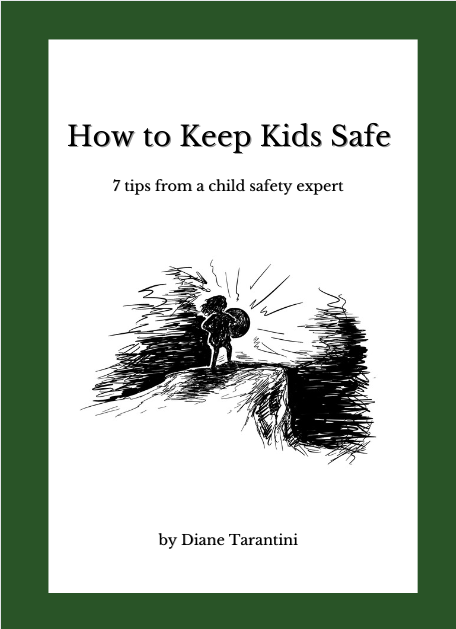My sleep problem? I can fall asleep just fine. But if I wake up at 3 am, dang it!
Because falling back to sleep in the middle of the night is near impossible for me, I consider it my #1 sleep problem. The one thing I refuse to do when this happens is look at the clock. Because I don’t want to know how much sleep I’m missing.
Then when the alarm goes off, even if I’ve managed to grab a few more winks, I wake up drowsy and heavy with fatigue.
Sleep deprivation is torture.
Ask any parent of a newborn. Or any woman going through menopause.
“In fact, the damage is so apparent that it is unethical to coercively deprive someone of sleep,” according to David Dinges, a professor of psychology at the University of Pennsylvania.
What exactly does sleep deprivation do to you?
Besides the gosh-awful feeling of overwhelming fatigue and 5-pound eyelids?
According to WebMd.com, not enough sleep can cause:
- Accidents: crashing your car, Three Mile Island, Exxon Valdez, Chernobyl
- Impaired cognitive function: decreased attention, alertness, concentration, reasoning, and problem solving
- Health problems: heart issues, stroke, diabetes
- Decreased sex drive
- Depression
- Aging of skin
- Weight Gain
So how much sleep should you be getting?
Seven to nine hours. If you’re not getting at least seven hours of sleep a night, perhaps you should consider implementing some “sleep hygiene” best practices.
According to the National Sleep Foundation, sleep hygiene is “… a variety of different practices and habits that are necessary to have good nighttime sleep quality and full daytime alertness.”
Whenever I googled “how to sleep better,” the same advice kept popping up.
- Don’t drink caffeine after 3 pm.
- Don’t nap longer than 30 minutes during the day.
- Shut off all blue-light emitting devices (ie. Cell phones, laptops, iPads) within 90 minutes of bedtime.
- Don’t drink alcohol close to bedtime (Yes, it initially relaxes you, but eventually it can incite wakefulness.).
- Establish a bedtime ritual.
- Try a melatonin supplement.
I tried all of those. The only thing that seemed to significantly help was not using my cell phone after 8 pm.
Medicinal sleep aids can help. And hurt.
When I went to Scotland last fall, I experienced a few hellish nights of not enough sleep. One of the gals medicated me with melatonin and Benadryl. This combination worked fine but it’s not something I want to do long term.
Upon my return, another friend told me TheraFlu Severe Cold and Cough, the generic version, works great for her. Because of a sleep-aid ingredient, TheraFlu seemed to solve my sleep problem. Any time I had a night or two of wakefulness, I’d drink a warm TheraFlu toddy before bed, and the result would be a solid 8 hours of zzzz’s.
But then I began to notice that on the days following a TheraFlu night, sooner or later I’d be slammed by a serious wave of exhaustion. I’m talking face-plant-on-my-desk-and-wake-up-two-hours-later exhaustion. So I ceased and desisted my TheraFlu use.
One day I tumbled into a sleep-related Reddit rabbit hole.
I can’t find the thread anymore, the one that named my mid-night wakefulness condition, the one that “prescribed” the gizmo that is currently working for me.
I’m not a doctor, nor do I play one on TV, but I’m thinking I have a Circadian Rhythm Sleep Disorder. According to verywellhealth.com, these kind of disorders can “…occur when your internal biological clock becomes out of sync with external time cues such as the natural dark-light cycle.”
How a “lizard light” saved the day night.
My Reddit reading adventure pointed people experiencing Circadian Rhythm Sleep Disorders to phototherapy, like the “lizard lamps” some folks with Seasonal Affective Light Disorder use.
This article shows the connection between certain kinds of light and sleep quality.
As a result, I hopped over to Amazon.com, read a ton of reviews, and ended up purchasing a Nature Bright-Sun Touch Plus -10000 LUX Light Therapy Lamp for $37.
Every morning, as I plan my day, write in my gratitude journal, and say my prayers, I do it in front of my grown-up “Light Bright.”
After using Light Bright every morning for a month, I’m now enjoying non-stop nights of 7+ hours of shut eye. This is in addition to no cell phone use after 8 pm and a consistent bedtime ritual.
Welcome back, Sleeping Beauty. Feel free to stay forever!
If you have a sleep problem, you may want to checkout this website. My friend Jen Silbert is a certified sleep coach. She has even more sleep solutions to offer!







